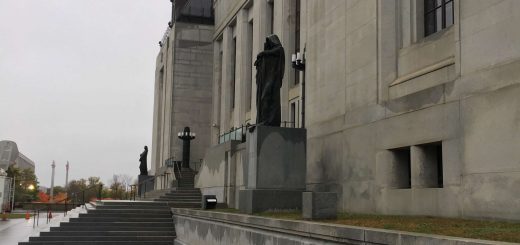What’s Taking So Long With R. v. Suberu?
The Supreme Court heard arguments in the case of R. v. Suberu (previously heard in the Ontario Court of Appeal, (2007), 85 O.R. (3d) 127) in April of 2008 – over thirteen months ago. Although the public generally accepts and tolerates the simple truth that the Supreme Court is a very busy institution, at this point the delay in reaching a final verdict in this matter should be considered extreme. The delay is all the more troubling considering that it concerns a matter the Supreme Court itself previously acknowledged would one day be something the SCC would need to revisit.
Suberu concerns the right of an individual detained (but not arrested) by police and when that detention triggers the right to counsel under s.10(b) of the Charter. The section states that “on arrest or detention”, everyone has the right “to retain and instruct counsel without delay and to be informed of that right.”(emphasis added)
Mr. Suberu and an accomplice obtained a stolen credit card which they used to purchase LCBO gift certificates, then attempted to use the $100 gift certificate to buy a $3 bottle of beer. The LCBO employees became suspicious and called the police without the appellants’ knowledge. When the constable arrived, he briefly detained the appellants and asked them some questions. It quickly became obvious to the officer that the appellants were the individuals responsible for the use of LCBO certificates (among other items) paid for with a stolen credit card, and he arrested them for fraud.
The obvious question in determining Mr. Suberu’s guilt in this instance is whether or not his right to counsel under s.10(b) was triggered. Justice Doherty, in the Ontario Court of Appeal decision (which found against Mr. Suberu), compared the situation to R. v. Hall, [1998] O.J. No. 2607 (Ct. J.), where an individual was detained for a traffic violation and then admitted to possessing marijuana before being informed of right to counsel. In Hall, the court found that the suspect’s 10(b) rights were activated by the traffic detention. However, Justice Doherty used a passage from Hall to illustrate the cause for dismissing Suberu’s appeal:
[H]e [the police officer] was entitled to ask an exploratory question in order to ascertain whether an investigation of the cigarette was worth pursuing. Only after making the determination that it was would he be required to inform Mr. Hall of his right to counsel in relation to that investigation.
Justice Doherty here suggested that the “exploratory question” was akin to the constable’s brief interrogation of Mr. Suberu. However, nowhere in his decision did he account for another distinguishing fact: that the constable, rather than stopping someone for an unrelated violation of a different nature, was actually called to the scene expressly for the purpose of investigating whether Mr. Suberu was potentially guilty of a specific crime.
Does this mean Justice Doherty’s decision was incorrect and requires overturning? Possibly. This ties into another reason why the amount of time spent thus far by the SCC to decide this case is so startling: when the Supreme Court first recognized the investigative detention power in R. v. Mann, [2004] 3 S.C.R. 59, they specifically noted that whether or not the right to counsel applies incidental to such detentions would be decided at a later date, with the benefit of deliberation by lower courts.
But now, the issue has been deliberated upon in the lower courts. And the SCC’s delay in handing down their decision in Suberu grows more puzzling every day.






Join the conversation